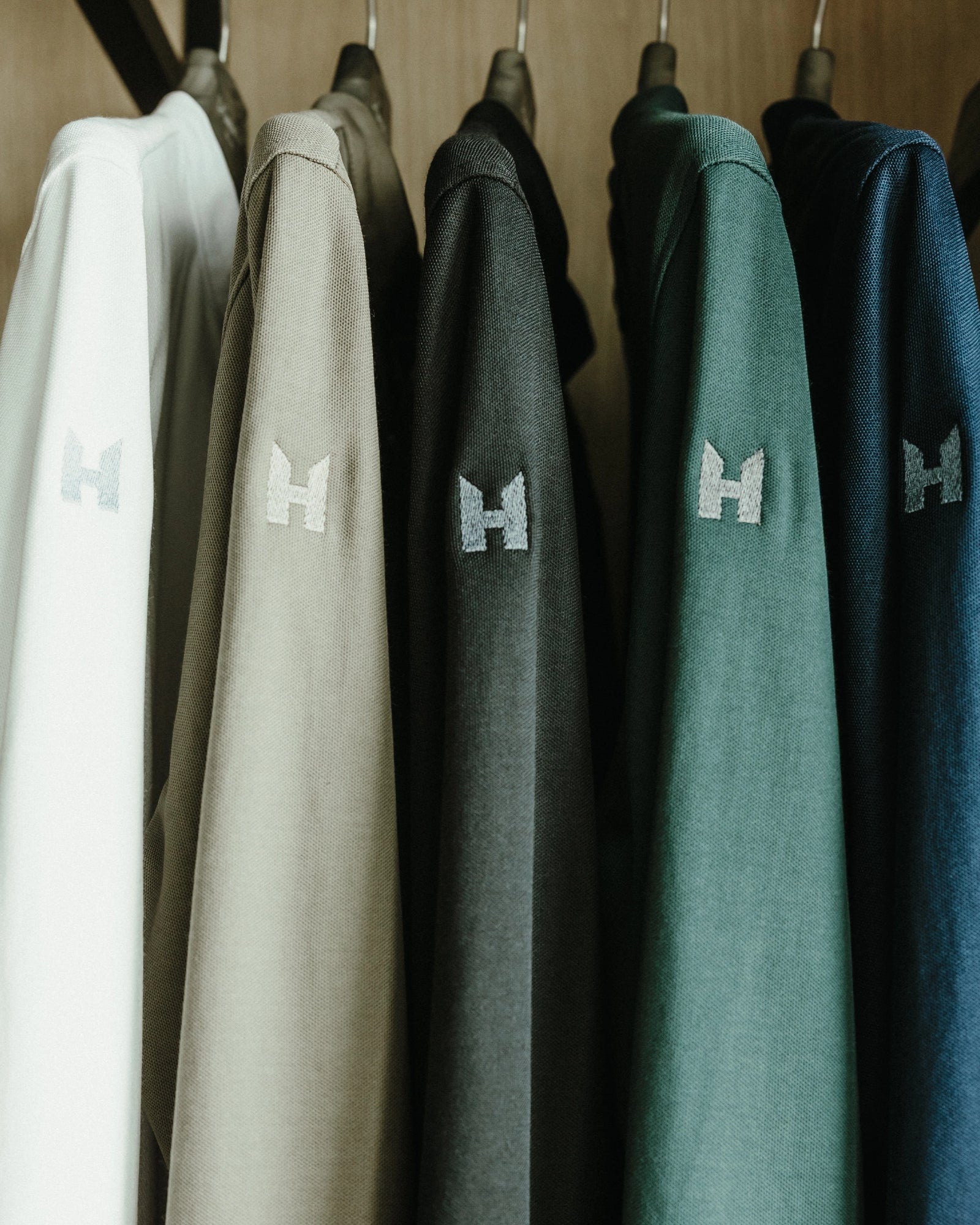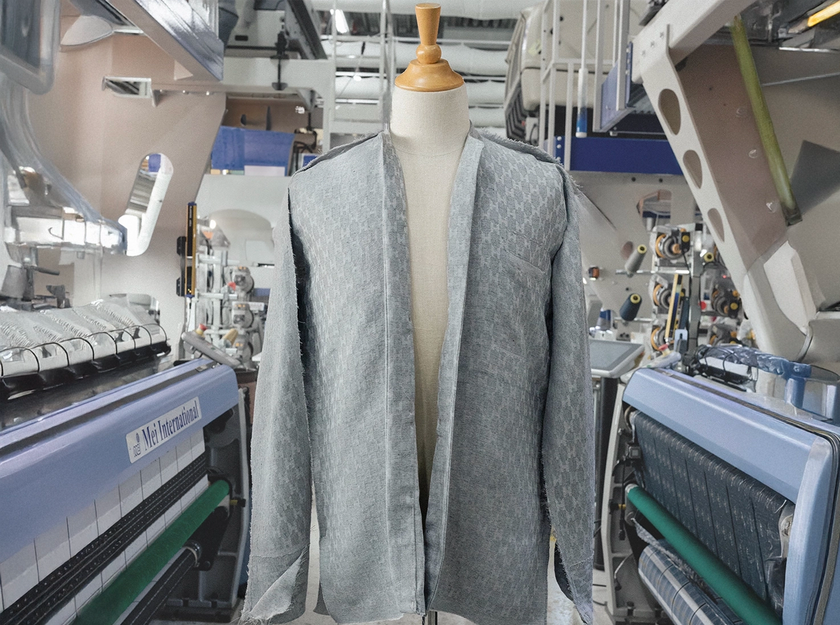What is B Corp?
A conscious choice for accountability. Since 2024, Le Nouveau Chef has been officially B Corp certified. This means we meet high standards in social impact, transparency, and responsible business practices. Not only are our products assessed, but our entire business model: from supplier selection and working conditions to governance structure and customer relationships.
The assessment is based on five areas: environment, workers, customers, governance, and community engagement. To complete the B Corp certification, our social mission has been legally incorporated into our articles of association. This ensures that social value is structurally embedded in our decision-making. For us, B Corp is not an endpoint but a valuable mirror: it helps us remain critical and further embed the values that have defined us since 1986: quality, responsibility, and transparency into our organization


Our B Impact Score
In our most recent assessment, Le Nouveau Chef achieved a total score of 111.1 points, well above the B Corp threshold of 80 points, demonstrating that we perform consistently across multiple areas. We scored above average in all five B Corp domains: governance, workers, community, environment, and customers. In 2024, there are more than 8,000 certified B Corps worldwide. Our full score is public and available on the B Lab website, and our next recertification will take place in 2026. We are proud to be part of a global community of companies committed to making a positive impact for people, communities, and the planet.
Why Le Nouveau Chef Chooses B Corp
For Le Nouveau Chef, becoming a B Corp was a logical step. As a family business with 40 years of experience in European production, we believe in responsibility, quality, and craftsmanship. Since 1986, we have been making workwear with a focus on an inclusive, fair, and sustainable world. The certification recognizes what has always been self-evident to us: treating people fairly, maintaining long-term relationships with suppliers, and producing high-quality garments. At the same time, it is a new step: we are embedding B Corp principles into all departments, from design and purchasing to sales and customer service. For us, making an impact means showing what this concretely means for the supply chain, products, and partners, through stories, figures, and policies. What drives us is not doing more, but doing better, without compromise, and B Corp helps us make this structural, measurable, and visible.

“For us, B Corp is not a final destination but a confirmation that we’re on the right path. It helps us measure more effectively, make sharper choices, and continue building a strong, transparent supply chain together with our community.”
— Paul van Luipen, CEO Le Nouveau Chef

For you
As a chef, you want to know what you are wearing. At Le Nouveau Chef, you receive clear information about the origin of every garment. You can see where the product was made, with which materials, and under what conditions. Our clothing is entirely produced in Europe. We have complete traceability of both the locations where our garments are assembled and the companies that produce the textiles for them. This way, we can guarantee not only quality but also responsible working conditions. In addition, you automatically choose a product that is made fairly, with care for people throughout the entire chain, from design to production. For us, transparency is not a promise, it is our way of working.
Ethical production within the European Union
What this means for you
- Our chef jackets and hospitality clothing are designed for long-term use, thanks to strong fabrics and high-quality finishes that withstand intensive working conditions.
- Our fabrics are carefully chosen for their strength, comfort, and reliability, including premium materials such as organic cotton, Tencel, and recycled polyester with a lower environmental impact.
- We limit overproduction and excess stock by producing only what is needed.
- We use certified materials and packaging such as FSC-certified cardboard or recycled plastic.
- Our collection is designed modularly, making garments easy to combine, resulting in fewer items and more use.
- All designs are developed in-house at our headquarters in the Netherlands, allowing us to maintain control over quality and sustainability.


What are our plans for the future?
Transparency requires numbers. That’s why, starting in 2024, we will publish an annual overview of our impact, objectives, and progress. This will include:
- The percentage of certified materials in our collection
- The number of garments repaired, reused, or returned
- Insights into CO₂ emissions and water usage per collection
- Supply chain information and audit results
We also set ambitious yet achievable goals.
Goals
More waste reduction and repair options
We aim to further reduce waste and provide more opportunities for clothing repair and reuse.
Expansion of circular initiatives
We will expand our circular initiatives, such as reusing leftover materials and take-back programs for used garments.
More organic cotton and recycled fabrics
We will increase the use of materials with a lower environmental impact, such as organic cotton and recycled textiles.
Protection of rights and well-being
We will strengthen our commitment to labor rights, fair wages, and animal welfare through certification and collaboration with suppliers.
Tackling water and soil pollution
We will take measures to reduce the negative impact of production on water and soil.
Measuring and reporting impact
We will measure and communicate our impact using Life Cycle Assessments and reporting tools.
Fully certified materials
Our goal is to use only certified materials, ensuring traceable and verifiable sustainability.
Full traceability to raw material
We aim for complete traceability of every garment, from raw material to finished product.
Introduction of the Digital Product Passport
We are working on introducing a digital product passport that provides transparency about origin and composition.
CO₂ reduction in line with SBTi guidelines
We will align our climate goals with measurable CO₂ reduction based on LCA analyses and the international SBTi guidelines.









